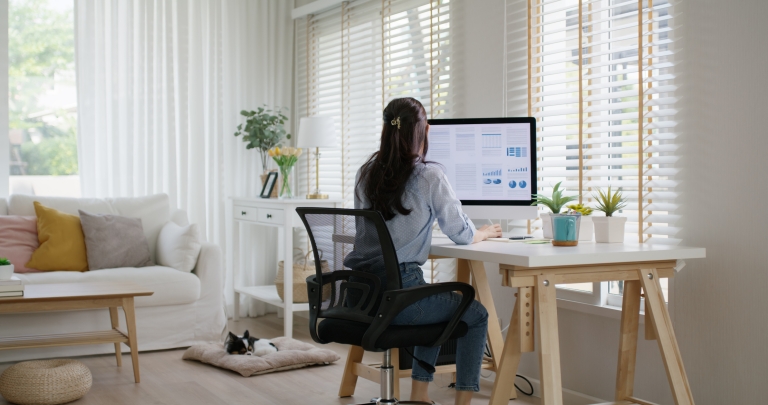Several studies show that a positive mood induces employees to spend more of their time in more creative tasks. Positive emotions influence the capacity for innovation. Experimental evidence generally shows that positive emotion improves memory. Most studies report that positive emotions improve performance; and a particular area that this relates to is vacation time, and work-life balance.
U.S. Americans' Work-Life Balance Is Exceedingly Imbalanced
Research shows many Americans who receive paid time off are afraid to take it because of workplace pressures. But it turns out the European vacation mindset could actually help boost productivity.
The European Union’s Working Time Directive guarantees EU workers at least 20 paid vacation days per year, contrary to the United States, which does not have a statutory minimum annual leave requirement. Some European countries mandate additional time off; the UK, France, Austria, Denmark, Finland, Luxembourg, and Sweden all require 25 or more paid annual leave days. OECD data shows more time off doesn’t have to translate to lower productivity. On the contrary, some of the most productive countries, measured by GDP per hour worked, were in Europe. The United States ranks far lower.
Belgium
Workers here enjoy an average of 8.6 hours of leisure per day—which trumps their 7.4-hour workdays. Locals really value quality family time, getting home in time for dinner each night, and taking a full month-long vacation over the summer to coincide with school breaks.
Austria
Many offices in Austria have an 8–5 workday—except for Fridays, when employees are encouraged to go home at 3 p.m. Never-ending "summer Fridays" aside, the country is also one of the best in the world for people looking to relocate; 80% of expats in Austria said their work-life balance improved since moving there (compared to the 53% global average).
Germany
The German government has several regulations in place to make sure its citizens don't overwork themselves. And the work-hour regulations (Arbeitszeitgesetz) state that workers cannot put in more than 48 hours a week—or work Sundays or national holidays.
Luxembourg
Working on Sundays is outlawed in Luxembourg (though exceptions include maintenance and security jobs). The country also scores well in the sleep and vacation departments, with citizens getting an average of 7.2 hours of sleep per night and a minimum of five weeks paid annual leave—in addition to national holidays.
Although many employees do not take advantage of early afternoon siestas there is still an annual vacation allowance of 30 days.
France
French workers spend the most time—9.3 hours per day—devoted to leisure and relaxation. In 2017, France also introduced a law that allows workers the "right to disconnect" from afterhours work emails.
Finland
At first glance, work hours in Finland look pretty similar to those in the United States: Monday through Friday, 8–5. However, their lunch breaks are one to two hours long. A great advocate of healthy living and rejuvenation, the government gave its citizens four "Nature Days" to celebrate its 100th birthday outdoors.
The Netherlands
Although the Netherlands only gives workers nine bank holidays per year, they compensate with the shortest work week of all the countries surveyed (averaging at 30.3 hours). Add to that 20 to 25 annual vacation days and extremely generous parental leave policies, this makes the Netherlands one of the highest-ranking countries for employees to enjoy a good work-life balance.
Sweden
Sweden enjoys 25 annual vacation days, along with 16 months of paid family leave and 14 bank holidays per year, making it one of the more generous countries in terms of in Europe for employees.
Denmark
Denmark balances salary against cost of living well, and average daily leisure hours (8.8 per day) way outnumber work hours (6.6 per day). According to U.S. News & World Report, this is also the 2nd best country in the world to raise children. Both mothers and fathers are entitled to 23 weeks of parental leave, plus mothers get an extra four weeks of leave before their expected due date.
Get Country-Specific Reports and Insights from an Experienced Expansion Partner
Expanding operations into a new country can be exciting—but it also takes dedicated preparation, including having a firm understanding of the social, political, and economic conditions in that market. Whether you’re considering sending one employee to Copenhagen or setting up a more permanent presence in Antwerp, Velocity Global’s team of expansion experts can provide you with region- and country-specific reports so you can make a sound, informed decision about when and where to expand, and to which benefits your employees are entitled. Our suite of global expansion services that includes our global Employer of Record solution offers everything you need to get up and running in your new European market quickly. Ready to get started? Let’s talk.
Topic:
Employee Benefits



